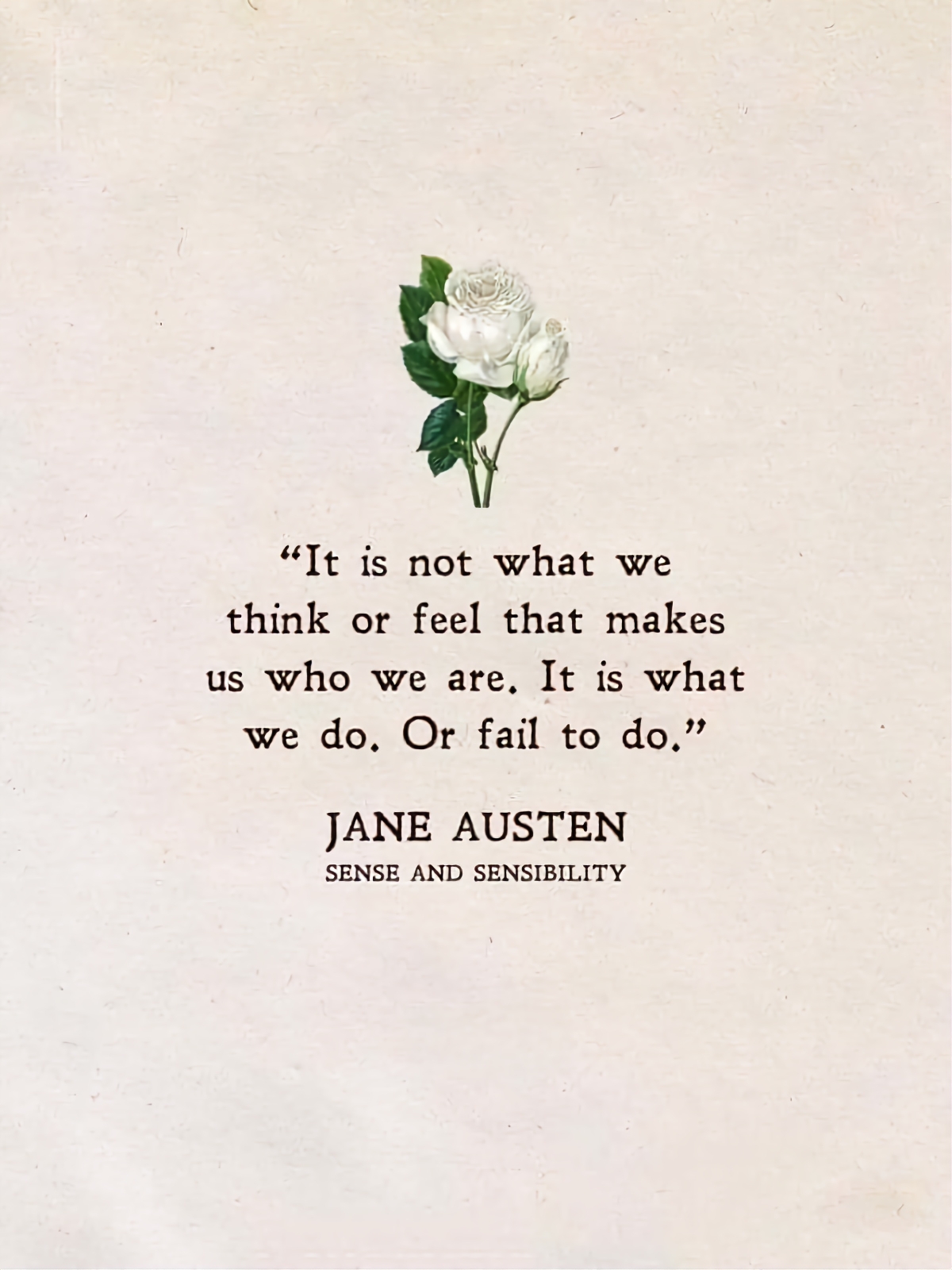Jane Austen from "Sense and Sensibility," states: "It is not what we think or feel that makes us who we are. It is what we do. Or fail to do."
The quote in the picture, attributed to Jane Austen from "Sense and Sensibility," states: "It is not what we think or feel that makes us who we are. It is what we do. Or fail to do." This phrase resonates deeply with the notion that actions speak louder than thoughts or feelings. It suggests that our identity and character are defined not by our private contemplations or emotions but by our visible actions and the decisions we make.
This perspective ties into the existential idea that essence follows existence, meaning that individuals are not born with predetermined purposes or identities, but rather, they define themselves through their actions over time. In Austen's era, society often judged individuals based on their social actions and adherence to societal norms. This quote could be seen as a reflection on the rigid class structures and social expectations of her time, emphasizing the importance of actions in the eyes of others and oneself.
Additionally, the phrase underscores the concept of moral responsibility. It implies that inaction, or the failure to act, is itself a choice that can define us. In the context of "Sense and Sensibility," this could relate to the characters' struggles between their internal desires and the outward actions they must take to maintain social decorum and responsibility.
The quote also subtly hints at the dichotomy of 'sense' and 'sensibility'—the balance between logic and emotion that Austen's characters often have to navigate. It serves as a reminder that while our feelings and thoughts are important, they must be manifested through actions to have a tangible impact on the world and to truly define our sense of self.


